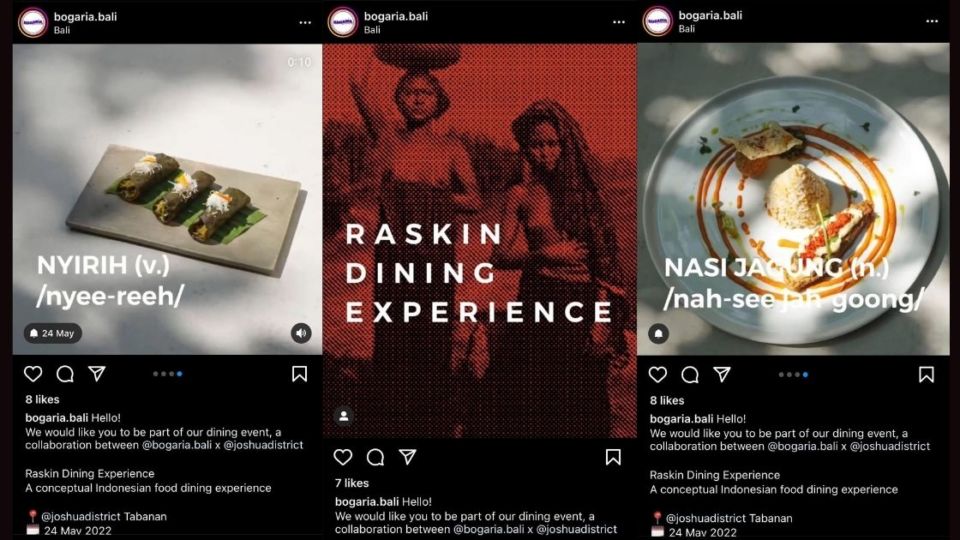Indonesian netizens were angered upon discovering plans for a themed dinner in Bali that appeared to belittle low income citizens.
The dining experience was branded as an “experience” comprising simple everyday dishes that are given the fancy plating treatment.
What shocked netizens was the fact that the organizers had the gall to name the event “Raskin Dining Experience.” Raskin (short for beras miskin, or subsidized rice) is the Indonesian government’s food assistance program selling rice below the market price to low-income families.
The dining event was supposed to take place on May 24 evening at Joshua District, a complex of villas, bar, restaurant, and rental space in Tabanan; in collaboration with Bogaria Dining Experience, which dubs itself a “conceptual Indonesian food dining experience.”
For IDR300,000 (US$20.45) per person, patrons would get a five-course meal and two cocktails with dishes comprising Nyirih (piper betle wraps) for amuse bouche; roti sumbu (candlewick bread), which is actually cassava; nasi jagung (corn rice) for the main course; tiwul (dried cassava) that can be served like rice or as a sweet snack; and ketan hitam (black glutinous rice porridge).
The menu items are actually everyday delicacies that are enjoyed by many people across Indonesia on a daily basis, though nasi jagung is particularly popular in villages due to its affordability factor. To top off the class insensitivity parade, organizers also employed the tagline “Viva La Agraria” for the event — as if fetishizing poverty wasn’t enough.
Naturally, the event was called out by netizens, especially on Twitter.
“‘Let’s experience poor people’s diet in a fancy way,’ what’s up with the behavior of the Indonesian middle class?” one tweet reads.
After the online scrutiny, the organizers called off the event and published an apology, though we’re not sure if it sounds like they’re actually apologizing or defending themselves for their poor choice of theme.
“We didn’t know people would get offended by it, since it wasn’t meant to cause any harm, it was meant more as a culturally educational food experience [sic],” one part of the statement reads.




